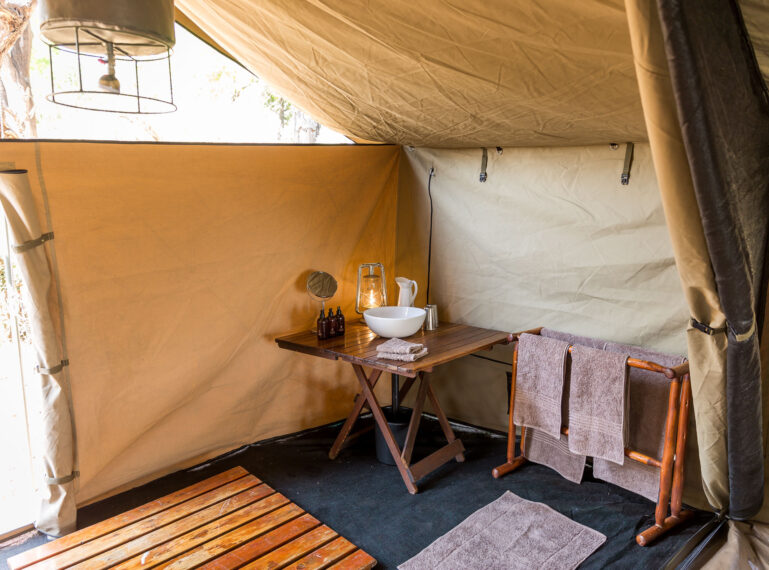
Champions of the sustainable safari experience, Mboma Island Expeditions blends luxury glamping with eco-conscious practices to ensure there’s little impact on their surrounding environment. They truly embody the “travel with purpose” ethos, which encourages people to travel consciously by choosing destinations/places that conserve the environment and support communities. Mboma is a mobile safari camp embraced by the pristine waterways of the Okavango Delta’s and its swaying palms. Wild and remote, the team at Mboma Island Expeditions understands they are mere guests upon the landscape, respecting both their “backyard” and wildlife. A mobile safari experience is an immersive way of exploring unknown areas, and is also the most eco-friendly. The team at Mboma Island Expeditions always play their part in making things better for the environment.
Here are a few ways in which Mboma Island Expeditions “leaves no trace”.
Low-impact camp setup
Prior to arrival, the entire campsite is set up from scratch. The main dining tent and Meru-style tents are lightweight, temporary structures that can be easily assembled and disassembled without leaving a trace. It takes a team of dedicated and environmentally conscious people to build the camp, which always stays true to its sophisticated—yet simple—style. From the toilets to the showers, and down to the minutest details such as rugs and scatter cushions, every aspect of the decor is meticulously laid out. At the end of your mobile safari in the Okavango Delta, the team deconstructs the entire camp while always remembering to leave everything the way they found it.
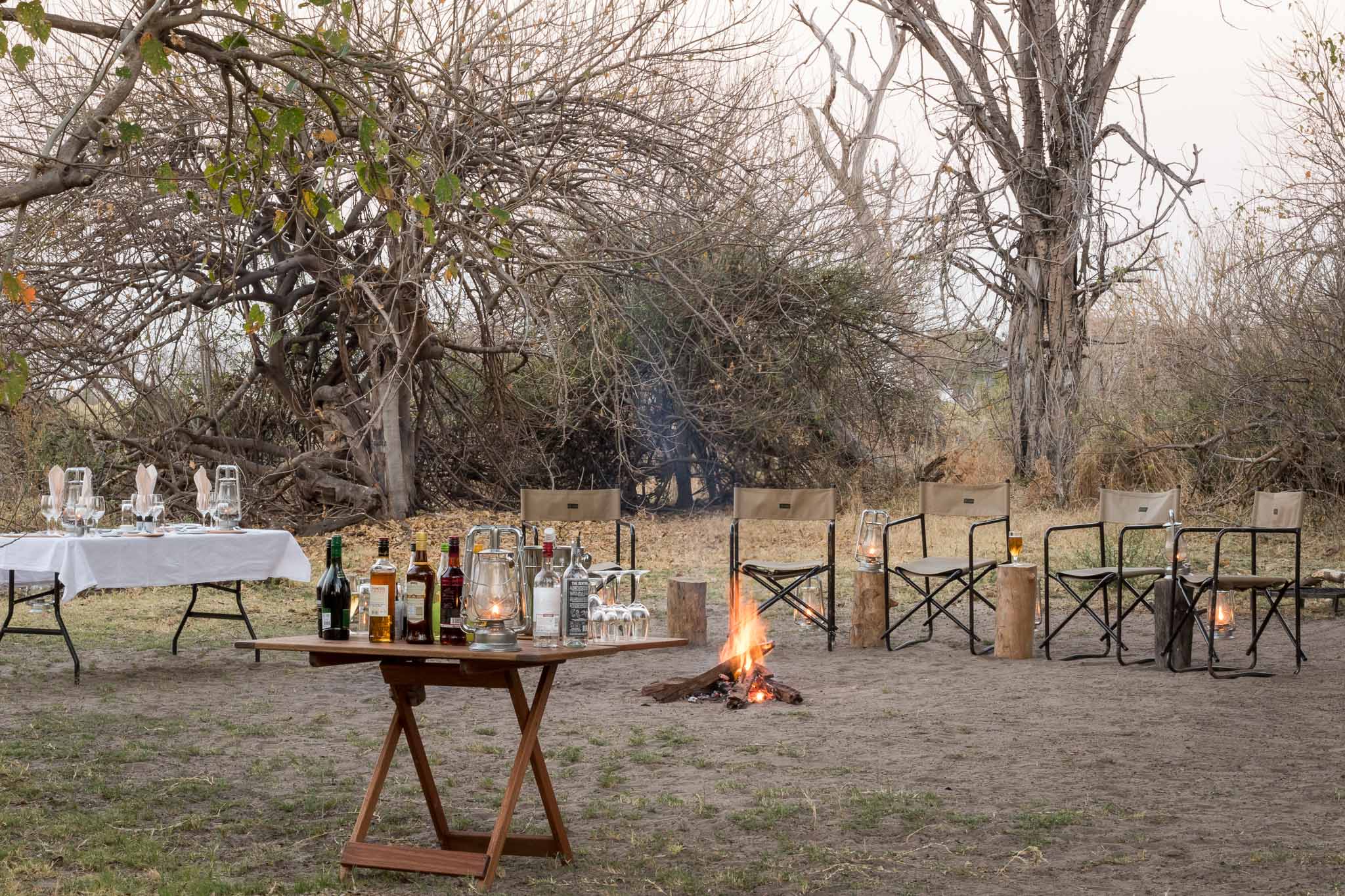 Sole use of solar-power
Sole use of solar-power
The African sun is always shining, bringing with a natural energy that is harnessed to power the camp. This renewable energy is harvested and used to power the camp for the kitchen. When it comes cooking, the chef also cooks on an open fire, taking every opportunity to keep things wild and natural. Traditional meals can include everything from toasted jaffles to breakfast oats and barbecue (braai) dinners.
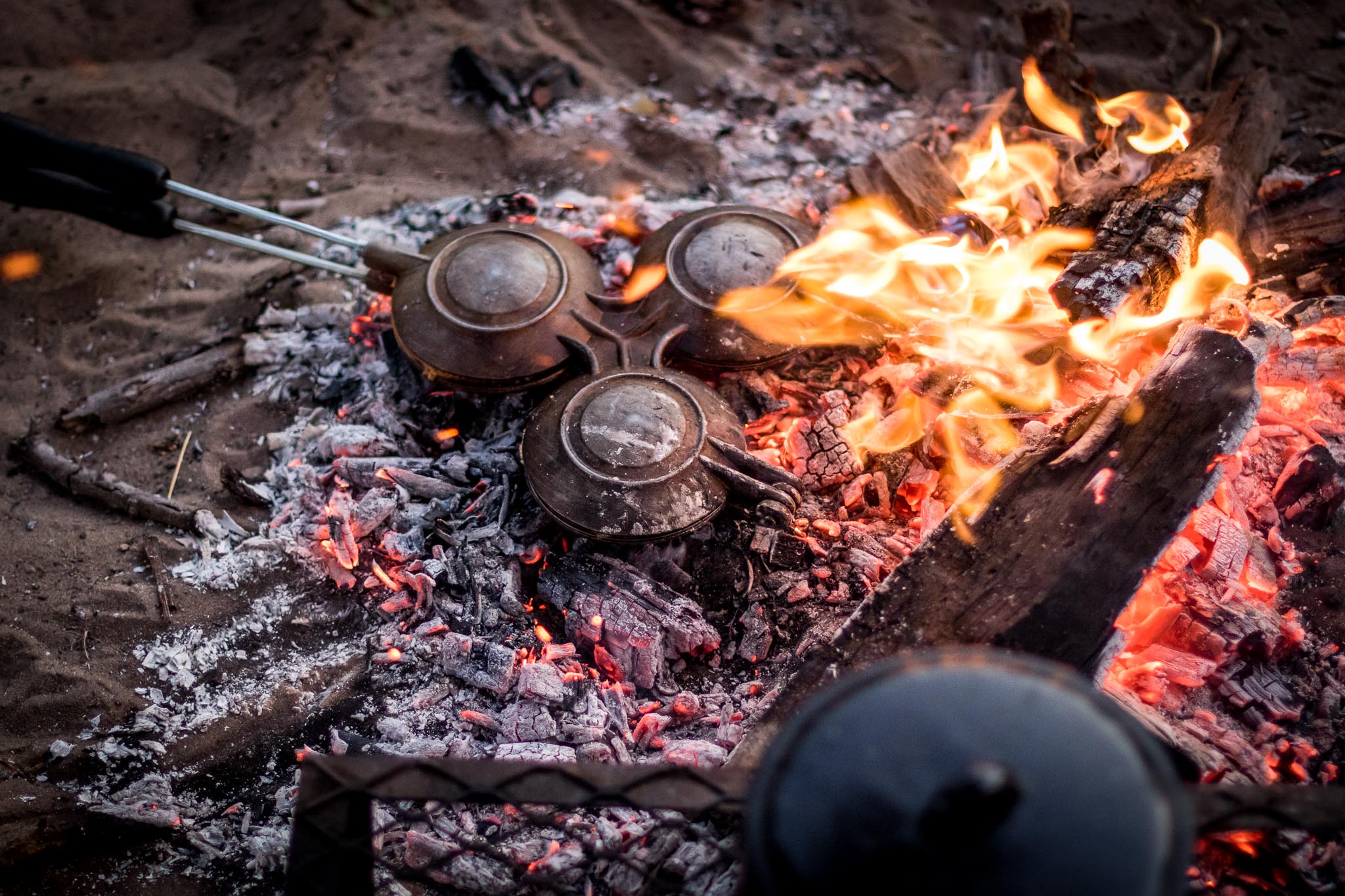

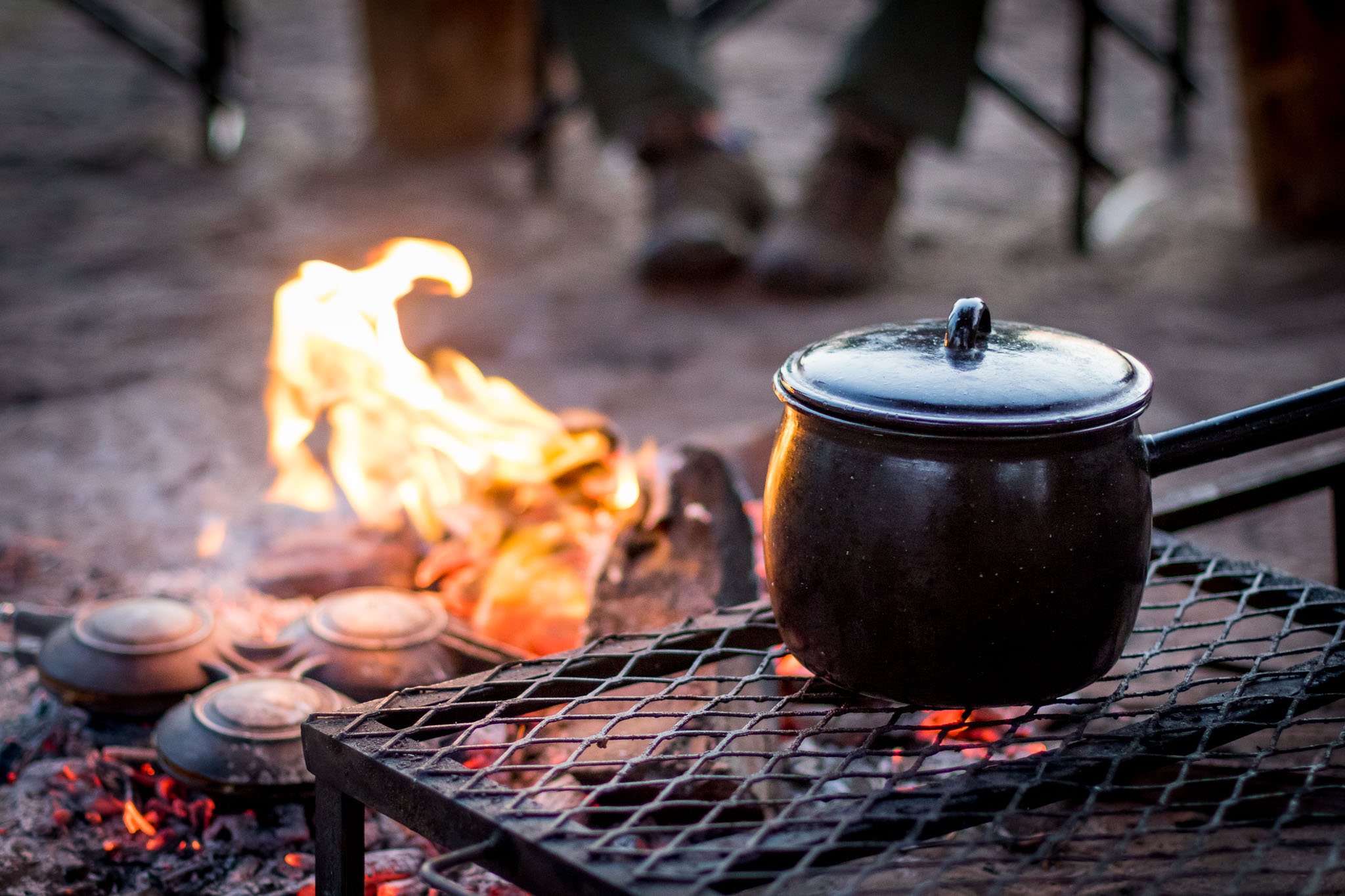 Bucket showers
Bucket showers
Bucket showers are built from a strong weather-resistant material (for storing water) and rope/pulley system. The bag is filled with warm water and suspended above your head. There’s a shower head at the base of the bucket that’s used to control the flow of water. A bucket shower is surprisingly luxurious, with some guests saying it’s one of the best showers they’ve ever had. Your bucket shower is en suite, ensuring a sense of privacy.
Natural looking, unobtrusive design
With their forests greens and mocha colour canvas, the Meru-style tents look like an extension of the environment. Everything here is in perfect harmony with the Delta’s natural colour palette. Even the pops of colour from the mats and scatter cushions blend in seamlessly. The tented camp simply looks like it’s part of the ecosystem! Durable, high-quality and long lasting materials are used to construct everything, ensuring longevity of each product.
The overall aesthetic appeal of Mboma is both enchanting and magical, with a touch of sophistication. Each tent has an ensuite bathroom, storage space, bed, and a lovely outdoor seating area with safari chairs. Every tiny detail has been considered with the environment in mind, taking interior inspiration from the Okavango Delta’s array of colours.
Fringing the banks of the waterways and hiding under a canopy of trees, Mboma truly is the perfect safari hideaway. The Meru tents are joined by a network of lantern-lined pathways, which bring a natural sense of light and ambiance to the area.
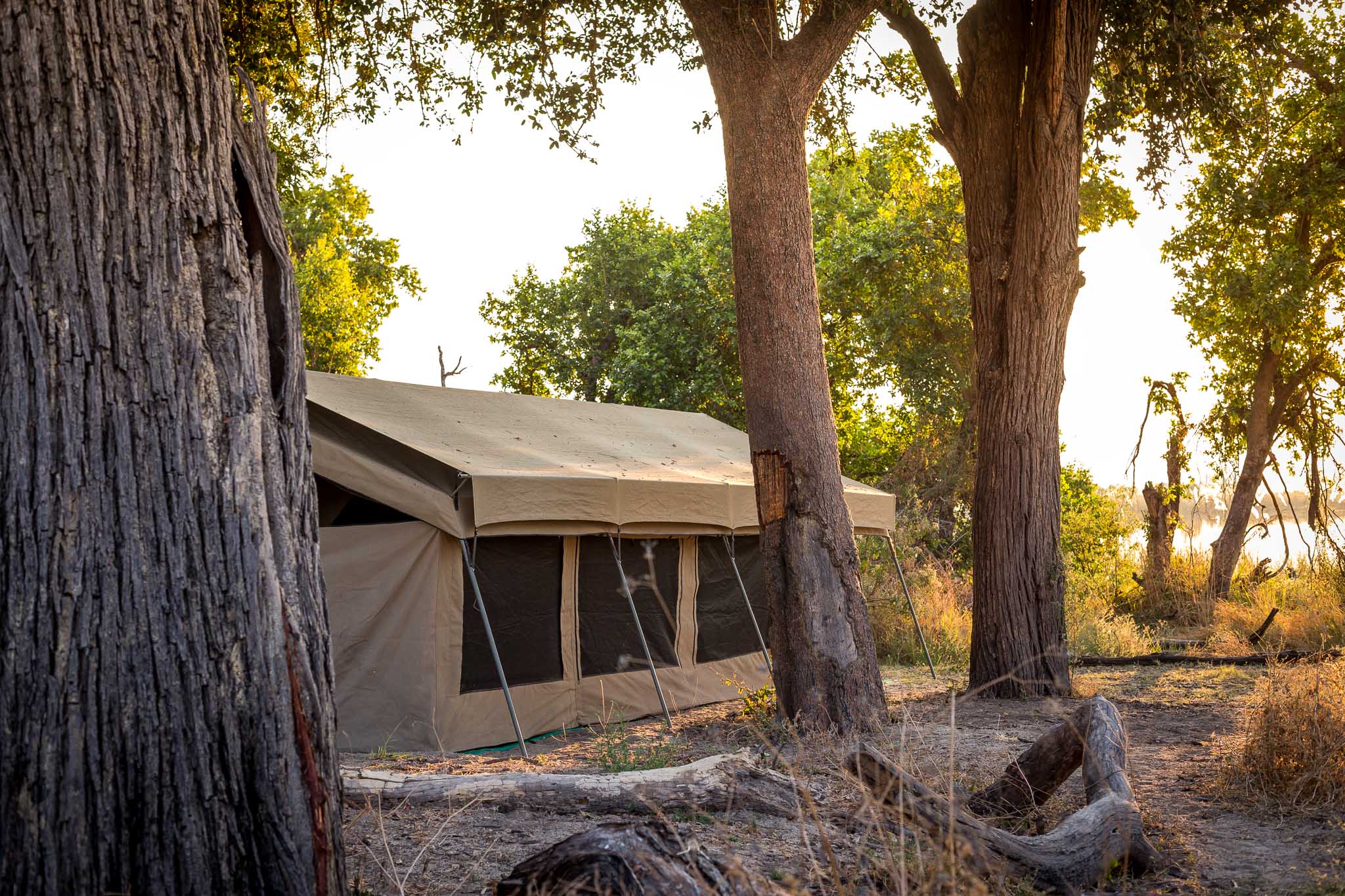
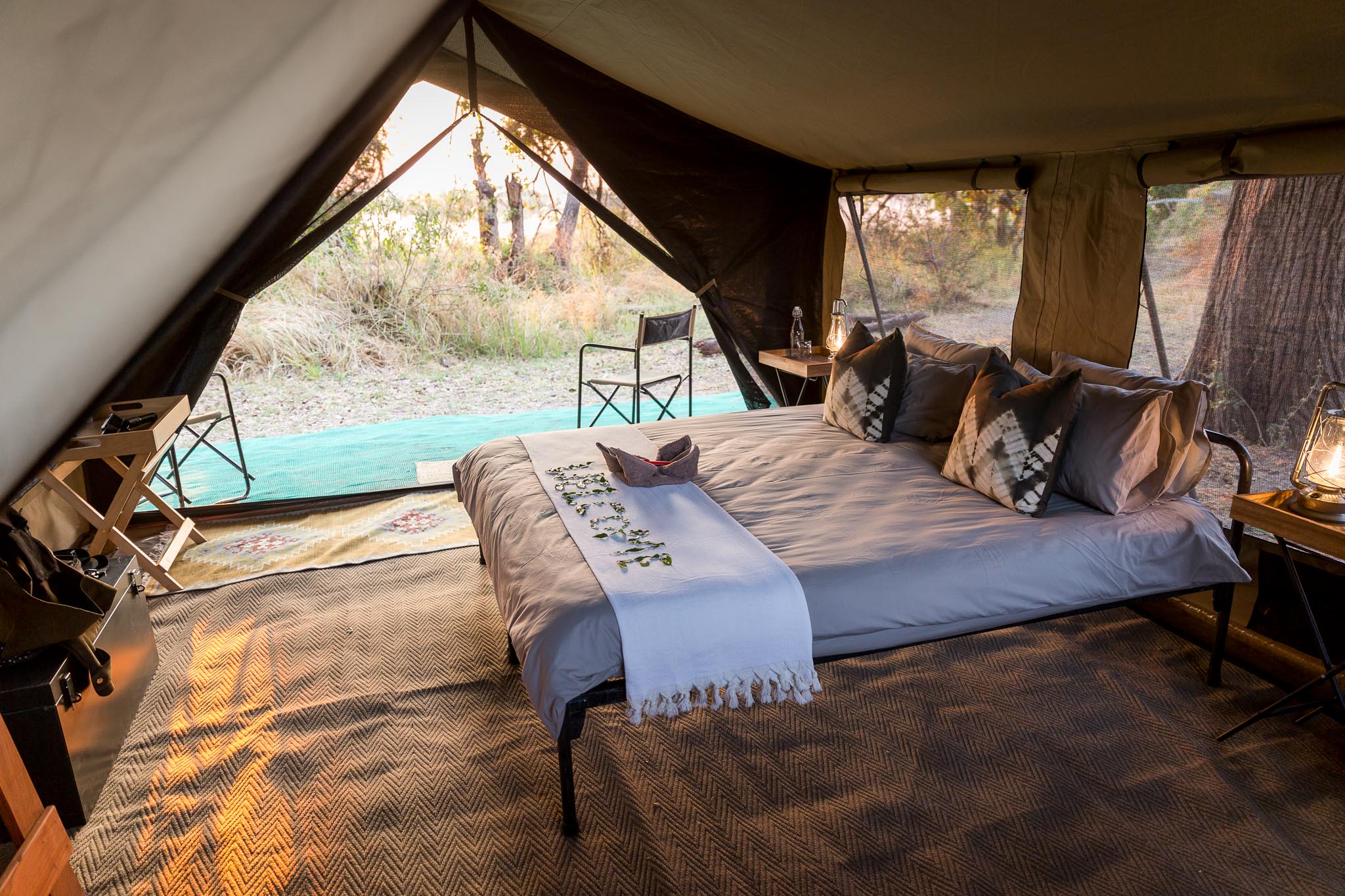 Waste management
Waste management
Mboma enforces a strict waste management system, including recycling and proper disposal practices. Eco toilets are used in the tents, and waste is disposed off site. Guests are encouraged to think responsibly about the environment while staying at Mboma. This is a protected part of the Okavango Delta, which is always taken into consideration.
Mboma Island Expeditions sets the gold standard for an Okavango Delta safari experience that encourages guests to cherish the safari experience, but also preserves the natural wonders of Botswana’s Okavango Delta.
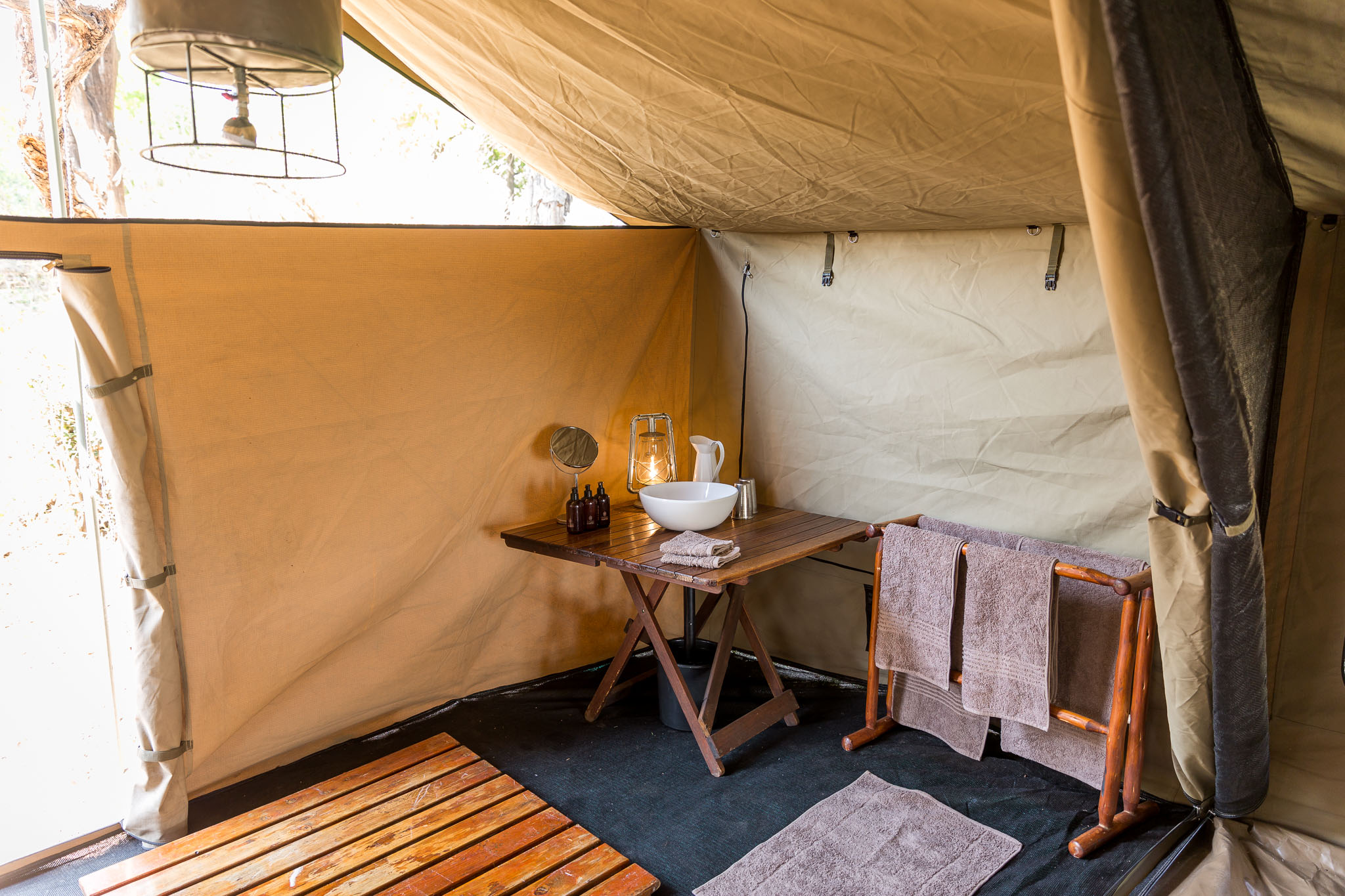
Leave a Comment